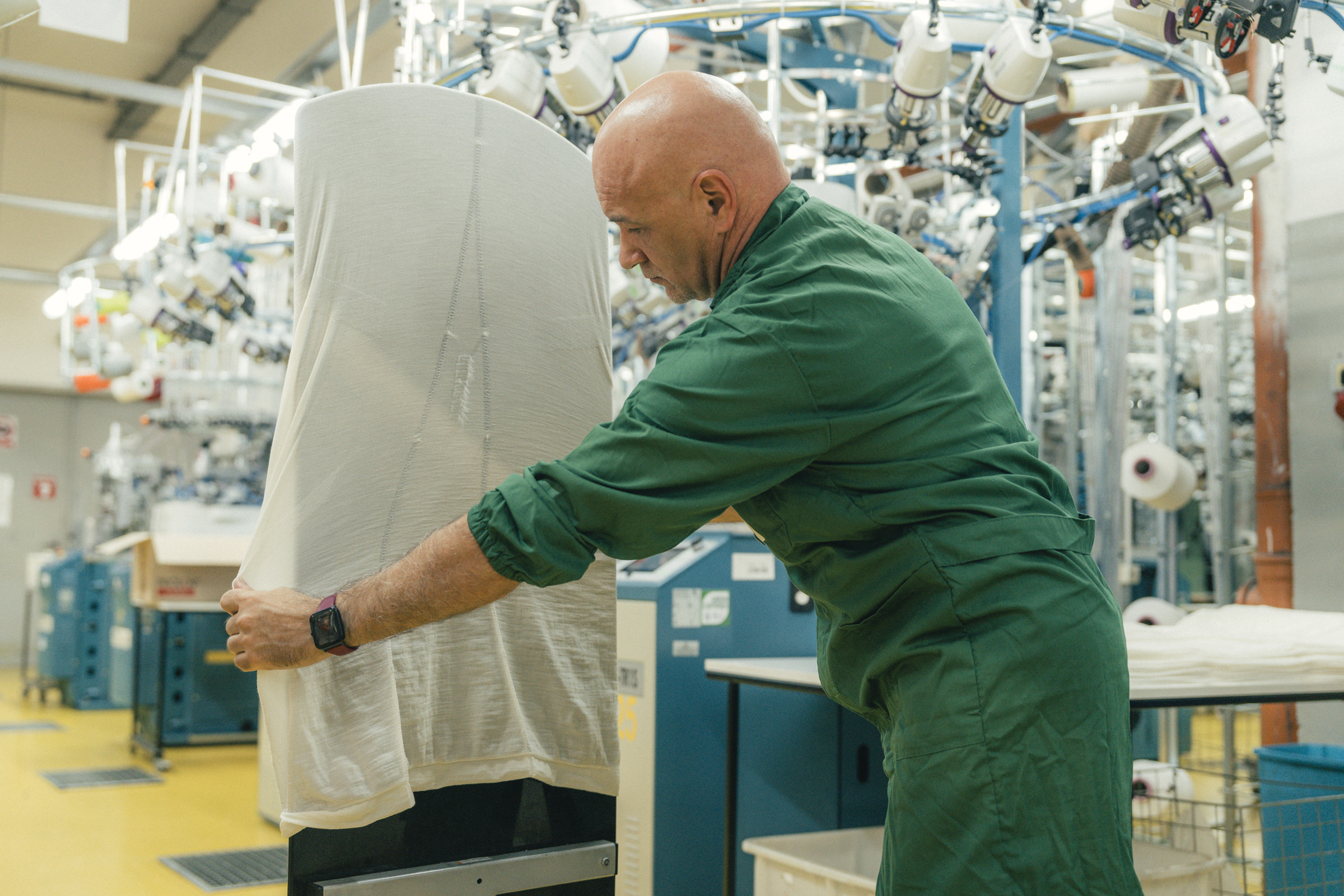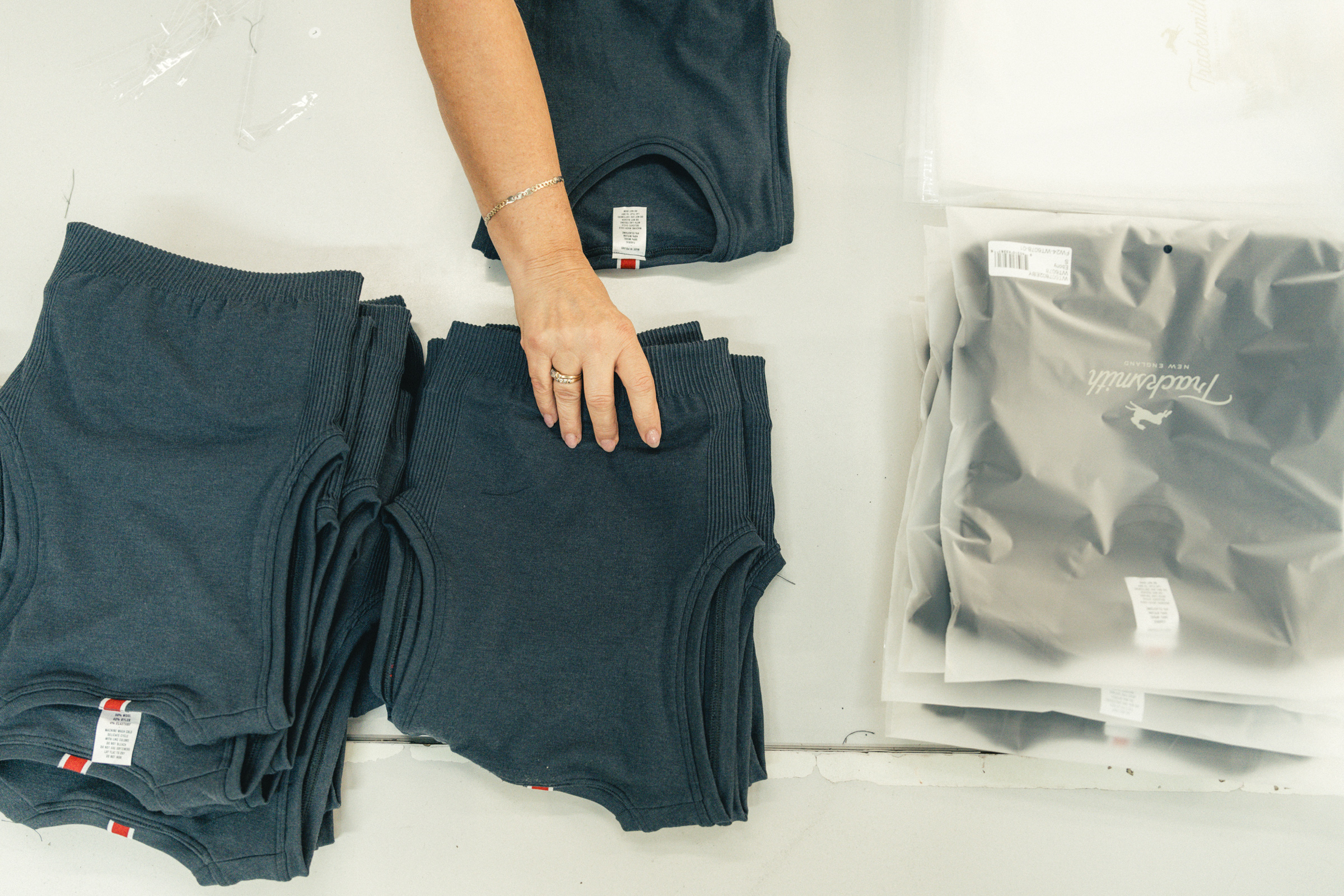
Crafting Cutting-Edge Comfort
Running Seamlessly
Photography by Marek Ogien
Since 2005, FILATI has crafted thermoactive garments – the base and mid-layers that serve as staples throughout colder seasons. Their experience has allowed them to offer solutions for a breadth of purposes, from flame-retardant undergarments for firefighters to performance-ready pieces for well-known sports brands. They are OEKO-TEX® certified, meaning their goods are free from harmful chemicals down to the button.
With almost 20 years of experience in seamless technology, they’ve mastered the production process, allowing them to uphold the quality of each and every product. Made in Europe, every step of operations starts from one of their 140 knitting machines, is perfected in a fully equipped dyehouse and sewing room, and then packaged in-house.
Not only does this allow them to keep the utmost standards, but with full control, they’re able to prioritize sustainability. FILATI constantly explores environmentally-friendly innovations, investing in the reduction of fossil fuel and water usage by utilizing green energy.

Seamless Success
Despite the many years that have passed since the origin of seamless technology, it’s still a new and fresh approach to creating clothing. It takes a very high threshold of knowledge to produce a good product in this category, and it is impossible for many companies to overcome that challenge.
But FILATI has committed to the concept – they’ve purchased their yarns from various suppliers across the globe, and over time, not only has their sourcing evolved, but they’ve finessed their machines and labor force to focus on natural fibers. High-maintenance, organic materials, such as Merino wool, tencel and cotton, are much harder to work with than synthetic, so FILATI has garnered the technical skills required to understand, dye, and knit the fibers that create their premium garments.
FILATI invests in every inch toward their success, from the people that make it all possible and their experience in the workplace, to the appropriate machinery it takes to produce pieces up to their standards. It takes time and care when working with natural materials, and FILATI ensures that the consideration required is upheld.


A Tracksmith Partner
FILATI works closely with their customers, developing unique, technical solutions. And so eight years ago, when they began to search for our solutions, there were obstacles that were distinct to any other brand that they had worked with. As their first North American customer, it meant a different measurement system, different target customers, and a totally different product. Even so, the partnership was well-forged – like us, FILATI doesn’t stray from a challenge.
With collaboration and commitment, we managed to create products that pioneer performance, featuring both functional properties and novel designs that combine Merino wool with open mesh technology. It started with the Brighton Base Layer in 2016 and has since developed beyond the best-seller, now including bodywear styles found in the new Fells Collection. We made a breakthrough, paving the way for FILATI to expand their technology and further push the boundaries of these advancements.
Our seamless products have allowed for experimentation with natural fiber blends, utilizing varying quantities and compositions that allow us to nail the functionality of each and every style. While the fabric blends may differ, we maintain a consistent 16.5 micron count, meaning we opt for a finer wool that’s soft against the skin, traps more air, and provides the optimal insulation and warmth.
For FILATI, quality is everything. With a focus on raw materials and a grasp on their prized process from start to finish, they are unrivaled in the seamless garment industry. For them, that means that they’ve mastered the art of apparel production. For Tracksmith, that means Merino wool magic, knit right into technical performance pieces.

Natural Growth
What started with the production of covered yarns morphed into seamless expertise over two decades, and in such an innovative industry, there’s no slowing down. They were first equipped with just a few old SM8-8 circular knitting machines that could only work with synthetic fibers and plain knit. Now, they have the ability to invest in more advanced machinery, allowing them to expand their focus to natural fibers. At first, it was cotton. Today, it’s Merino wool. Tomorrow? Only time and technology will tell.









